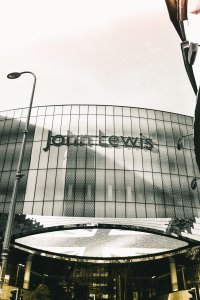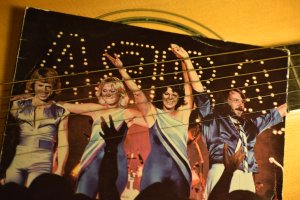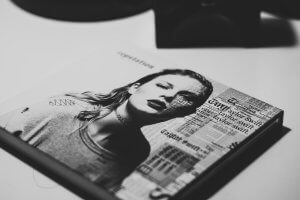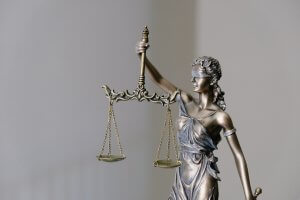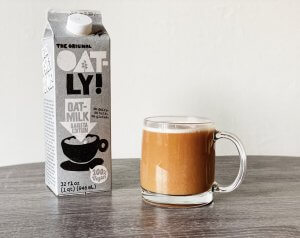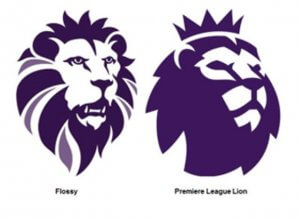- Intellectual property
- Intellectual property disputes
- Media arts and culture

Longer Reads
Copyright The Musical: A Tale of Broadway Blunders
In a series of news stories ripe for Lady Whistledown’s society papers, this summer has seen both Netflix and Lin Manuel-Miranda turning to their intellectual property lawyers in response, respectively, to an unofficial musical adaptation of the hit television series Bridgerton and a Texas church’s unauthorised and ‘Christianised’ performance of the Broadway blockbuster Hamilton.
3 minute read
Published 16 August 2022
Key information
- Specialisms
- Dispute Resolution
- Sectors
- Media arts and culture
Tickets for The Unofficial Bridgerton Musical: Live in Concert, which had been scheduled to take place at London’s Royal Albert Hall in September, were pulled and the production hastily cancelled after Netflix filed a lawsuit against the show’s writers, Abigail Barlow and Emily Bear, and their production company, Barlow & Bear.
Meanwhile, the creator of the highly successful Hamilton musical, Lin Manuel-Miranda, has tweeted that the Texas church in question, the Door Christian Fellowship Ministries, staged an ‘illegal’ and ‘unauthorized’ adaptation of his show, adding: ‘Now lawyers do their work’.
That both productions are adapted from existing material is not uncommon for the musical theatre. With a few notable exceptions, the vast majority of musicals are derivative works, insofar as they take their inspiration from a range of sources as diverse as novels (take, for instance, Les Misérables), plays (Chicago), films (The Lion King), operas (Rent), poems (Cats), paintings (Sunday in the Park with George), and even comic books (Spider-Man: Turn Off the Dark). The ascendancy in the last two decades of so-called ‘jukebox musicals’, where the score is simply a selection of well-established pop songs to which a storyline is retrofitted (the quintessential example being Mamma Mia!), also owes much to audience’s familiarity with the pre-existing back catalogues.
If such well-known titles were able to repackage existing source material for the musical stage without lawsuits, then what went wrong in the case of the Unofficial Bridgerton Musical and the Texas Hamilton? Put simply, it appears that neither production obtained the necessary licences of the intellectual property rights needed to ensure a lawful presentation of the work in question.
In the case of Bridgerton, Netflix Studios, LLC owns the registered trade mark ‘BRIDGERTON’. It therefore claims that the musical’s use of the name ‘BRIDGERTON’ in respect of live entertainment events (a service category against which the mark is registered) amounts to trade mark infringement. In addition, Netflix Worldwide Entertainment alleges various instances of copyright infringement, on the basis that Barlow & Bear ‘copied liberally and nearly identically from Bridgerton across a number of original elements of expression’ by using the same characters, copying key plot points, and lifting ‘substantial dialogue verbatim’.
It is clear that Netflix feels that a line was crossed in announcing the Albert Hall concert staging of The Unofficial Bridgerton Musical. The streaming giant has been known to take a less aggressive approach than might be expected with regard to previous unauthorised use of its intellectual property – five years ago, for instance, its cease-and-desist letter to an authorised Stranger Things-branded pop-up bar made the headlines for its humorous and conciliatory tone (which ultimately resulted in achieving the result Netflix hoped for). And in this case, when Barlow & Bear’s original fan album went viral on TikTok last winter, Netflix had unofficially given the project its blessing, even tweeting that it was ‘absolutely blown away’ by it. The situation soured, however, when Barlow & Bear announced their intention to stage a live concert of the musical at the Kennedy Center in Washington, DC. The lawsuit claims that, at this point, Netflix offered a licence that would enable the live performances at the Kennedy Center to take place, and that this was refused by Barlow & Bear. Even though the licence offer was consequently revoked, the Kennedy Center performances went ahead regardless. The announcement of the Albert Hall production was, therefore, the final straw for Netflix.
The Texas church at the centre of the Hamilton row similarly appears to have overreached the goodwill extended to it by the rightsholders of the musical, which tells the life story of Alexander Hamilton, a founding father of the United States. According to a spokesperson for the Broadway production, the team behind the show does not grant amateur or professional licenses (and had not done so for the church). However, it was willing to turn a blind eye and allow a second performance to go ahead at the church on condition that it not be recorded or livestreamed. This ‘limited permission’, as it was described by the spokesperson in the New York Times, was granted before the rightsholders became aware of changes made by the church to the material. This included certain lyric changes in order to make explicit references to the Bible and Jesus Christ, as well as an inserted sermon with controversial content. Upon becoming aware of this, the Hamilton team claim, no further performances were permitted by the rightsholders and legal counsel was instructed. The team has announced that it is ‘in the process of reviewing the unauthorized changes made to the script to determine further action’.
While US copyright law does allow churches, in particular circumstances, to perform certain copyrighted works under a specific and limited religious services exemption, this is unlikely to apply to dramatic stagings of musicals and does not authorise the creation of works derived from copyrighted material.
Intellectual property infringement cases such as these two usually settle out of court, so the outcome of either is unlikely to be made public. An important takeaway from this summer of musical drama, however, is that, derivative though most musicals may be in terms of material, this does not serve as a carte blanche for their staging without seeking and obtaining the necessary permissions from the rightsholders of the adapted source material. Failure to do this will inevitably damage the show’s prospects and longevity. In the case of The Unofficial Bridgerton Musical, the breakdown of trust between Netflix and Barlow & Bear may have jeopardised any hope of a commercial deal. Had such a deal been reached, it would have likely involved Netflix taking a percentage of the profits from productions of the show in the form of royalties. If so, then while Barlow & Bear may have felt that the percentage stipulated in the licence offered by Netflix was too high to accept, the costs of the legal fallout from this and the opportunity cost of a failed partnership with Netflix will likely be higher.
This article is for general awareness only and does not constitute legal or professional advice. The law may have changed since this page was first published.
Related content
Longer Reads
Copyright The Musical: A Tale of Broadway Blunders
In a series of news stories ripe for Lady Whistledown’s society papers, this summer has seen both Netflix and Lin Manuel-Miranda turning to their intellectual property lawyers in response, respectively, to an unofficial musical adaptation of the hit television series Bridgerton and a Texas church’s unauthorised and ‘Christianised’ performance of the Broadway blockbuster Hamilton.
Published 16 August 2022
Associated sectors / services
Authors
Tickets for The Unofficial Bridgerton Musical: Live in Concert, which had been scheduled to take place at London’s Royal Albert Hall in September, were pulled and the production hastily cancelled after Netflix filed a lawsuit against the show’s writers, Abigail Barlow and Emily Bear, and their production company, Barlow & Bear.
Meanwhile, the creator of the highly successful Hamilton musical, Lin Manuel-Miranda, has tweeted that the Texas church in question, the Door Christian Fellowship Ministries, staged an ‘illegal’ and ‘unauthorized’ adaptation of his show, adding: ‘Now lawyers do their work’.
That both productions are adapted from existing material is not uncommon for the musical theatre. With a few notable exceptions, the vast majority of musicals are derivative works, insofar as they take their inspiration from a range of sources as diverse as novels (take, for instance, Les Misérables), plays (Chicago), films (The Lion King), operas (Rent), poems (Cats), paintings (Sunday in the Park with George), and even comic books (Spider-Man: Turn Off the Dark). The ascendancy in the last two decades of so-called ‘jukebox musicals’, where the score is simply a selection of well-established pop songs to which a storyline is retrofitted (the quintessential example being Mamma Mia!), also owes much to audience’s familiarity with the pre-existing back catalogues.
If such well-known titles were able to repackage existing source material for the musical stage without lawsuits, then what went wrong in the case of the Unofficial Bridgerton Musical and the Texas Hamilton? Put simply, it appears that neither production obtained the necessary licences of the intellectual property rights needed to ensure a lawful presentation of the work in question.
In the case of Bridgerton, Netflix Studios, LLC owns the registered trade mark ‘BRIDGERTON’. It therefore claims that the musical’s use of the name ‘BRIDGERTON’ in respect of live entertainment events (a service category against which the mark is registered) amounts to trade mark infringement. In addition, Netflix Worldwide Entertainment alleges various instances of copyright infringement, on the basis that Barlow & Bear ‘copied liberally and nearly identically from Bridgerton across a number of original elements of expression’ by using the same characters, copying key plot points, and lifting ‘substantial dialogue verbatim’.
It is clear that Netflix feels that a line was crossed in announcing the Albert Hall concert staging of The Unofficial Bridgerton Musical. The streaming giant has been known to take a less aggressive approach than might be expected with regard to previous unauthorised use of its intellectual property – five years ago, for instance, its cease-and-desist letter to an authorised Stranger Things-branded pop-up bar made the headlines for its humorous and conciliatory tone (which ultimately resulted in achieving the result Netflix hoped for). And in this case, when Barlow & Bear’s original fan album went viral on TikTok last winter, Netflix had unofficially given the project its blessing, even tweeting that it was ‘absolutely blown away’ by it. The situation soured, however, when Barlow & Bear announced their intention to stage a live concert of the musical at the Kennedy Center in Washington, DC. The lawsuit claims that, at this point, Netflix offered a licence that would enable the live performances at the Kennedy Center to take place, and that this was refused by Barlow & Bear. Even though the licence offer was consequently revoked, the Kennedy Center performances went ahead regardless. The announcement of the Albert Hall production was, therefore, the final straw for Netflix.
The Texas church at the centre of the Hamilton row similarly appears to have overreached the goodwill extended to it by the rightsholders of the musical, which tells the life story of Alexander Hamilton, a founding father of the United States. According to a spokesperson for the Broadway production, the team behind the show does not grant amateur or professional licenses (and had not done so for the church). However, it was willing to turn a blind eye and allow a second performance to go ahead at the church on condition that it not be recorded or livestreamed. This ‘limited permission’, as it was described by the spokesperson in the New York Times, was granted before the rightsholders became aware of changes made by the church to the material. This included certain lyric changes in order to make explicit references to the Bible and Jesus Christ, as well as an inserted sermon with controversial content. Upon becoming aware of this, the Hamilton team claim, no further performances were permitted by the rightsholders and legal counsel was instructed. The team has announced that it is ‘in the process of reviewing the unauthorized changes made to the script to determine further action’.
While US copyright law does allow churches, in particular circumstances, to perform certain copyrighted works under a specific and limited religious services exemption, this is unlikely to apply to dramatic stagings of musicals and does not authorise the creation of works derived from copyrighted material.
Intellectual property infringement cases such as these two usually settle out of court, so the outcome of either is unlikely to be made public. An important takeaway from this summer of musical drama, however, is that, derivative though most musicals may be in terms of material, this does not serve as a carte blanche for their staging without seeking and obtaining the necessary permissions from the rightsholders of the adapted source material. Failure to do this will inevitably damage the show’s prospects and longevity. In the case of The Unofficial Bridgerton Musical, the breakdown of trust between Netflix and Barlow & Bear may have jeopardised any hope of a commercial deal. Had such a deal been reached, it would have likely involved Netflix taking a percentage of the profits from productions of the show in the form of royalties. If so, then while Barlow & Bear may have felt that the percentage stipulated in the licence offered by Netflix was too high to accept, the costs of the legal fallout from this and the opportunity cost of a failed partnership with Netflix will likely be higher.
This article is for general awareness only and does not constitute legal or professional advice. The law may have changed since this page was first published.
Associated sectors / services
- Intellectual property
- Intellectual property disputes
- Media arts and culture
Authors
Need some more information? Make an enquiry below.
Subscribe
Please add your details and your areas of interest below
Article contributor
Patrick
WheelerPartner - Head of IP & Data Protection
Specialising in Intellectual property disputes, Data protection, Digital, Intellectual property and Manufacturing
Enjoy reading our articles? why not subscribe to notifications so you’ll never miss one?
Subscribe to our articlesMessage us on WhatsApp (calling not available)
Please note that Collyer Bristow provides this service during office hours for general information and enquiries only and that no legal or other professional advice will be provided over the WhatsApp platform. Please also note that if you choose to use this platform your personal data is likely to be processed outside the UK and EEA, including in the US. Appropriate legal or other professional opinion should be taken before taking or omitting to take any action in respect of any specific problem. Collyer Bristow LLP accepts no liability for any loss or damage which may arise from reliance on information provided. All information will be deleted immediately upon completion of a conversation.
Close









